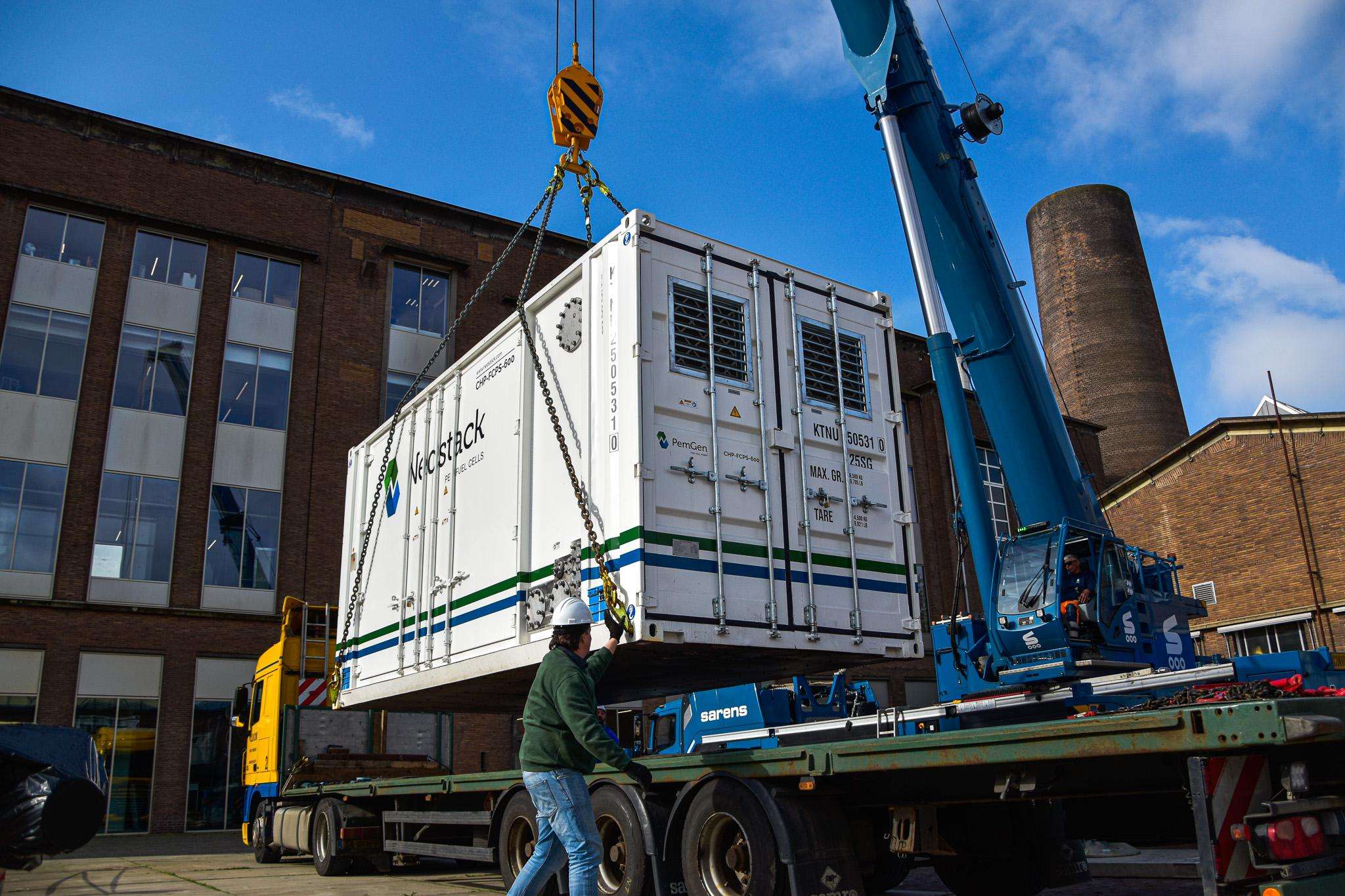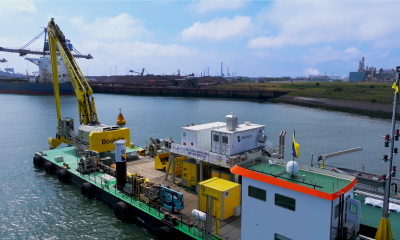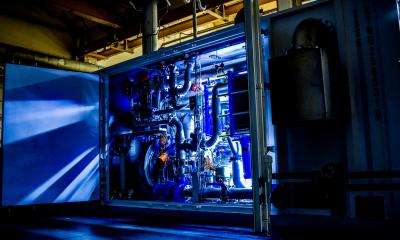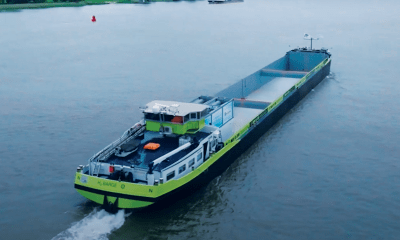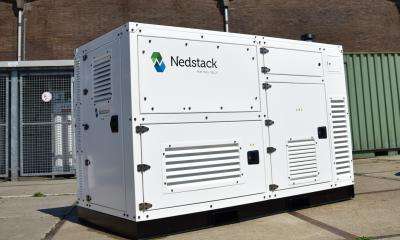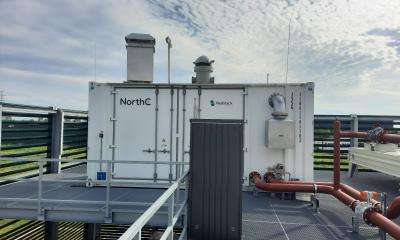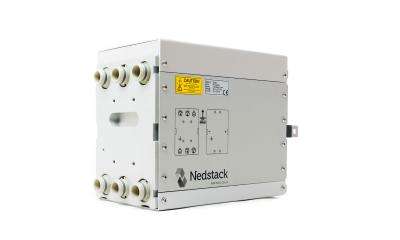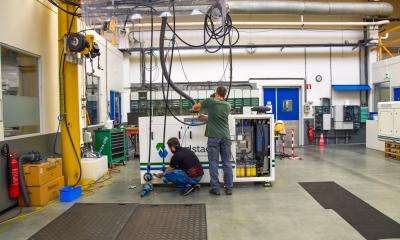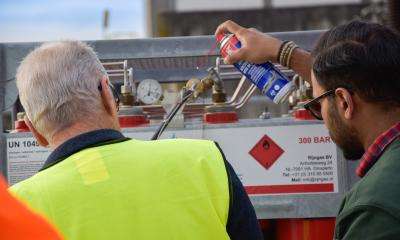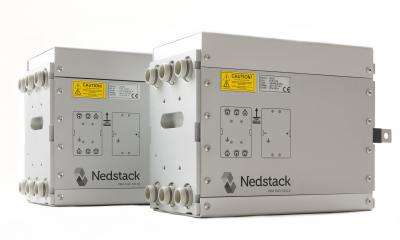IMO MEPC 80 Strategy: Navigating Towards Net-Zero Emission Shipping:
The IMO MEPC 80 strategy represents a comprehensive framework for reducing greenhouse gas emissions from international shipping. Under this strategy, the global maritime industry is striving for a 30% reduction in annual GHG emissions by 2030 and a 80% reduction by 2040. Furthermore, the strategy aims to phase out GHG emissions entirely, achieving net-zero emissions by 2050. These targets underscore the urgent need for innovative and sustainable technologies to revolutionize the shipping industry.
PEM Fuel Cells Technology Solutions: A Key Player in Achieving the IMO’s Goals:
PEM (Proton Exchange Membrane) fuel cells offer a innovative solution for the maritime sector to transition towards a greener future. Fuel cells convert chemical energy into electrical energy through an electrochemical reaction, with the only by-product being water vapor. This technology provides a sustainable alternative to traditional combustion engines, which are responsible for a significant portion of shipping emissions.
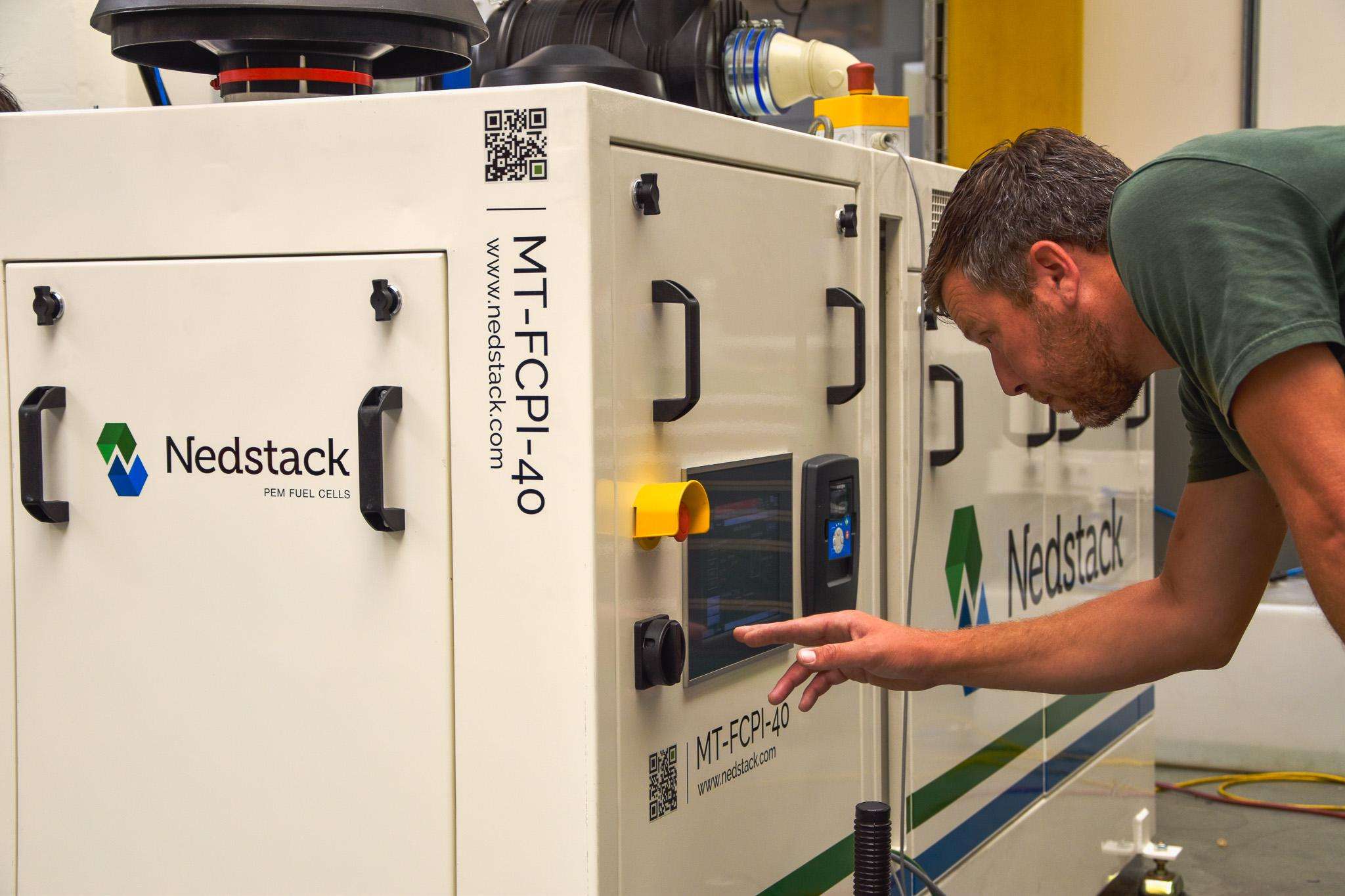
Advantages of using PEM fuel cells:
-
Zero Emission: By utilizing hydrogen as fuel, our PEM fuel cell technology enables ships to navigate with zero carbon emissions, contributing to the reduction of greenhouse gas emissions in the maritime sector.
-
Efficiency and Performance: PEM fuel cells offers high energy conversion efficiency, ensuring optimal performance while minimizing energy waste. This efficiency translates into increased range and operational capabilities for ships, reducing the reliance on fossil fuels and enhancing their overall environmental footprint.
-
Versatility: PEM Fuel Cells are versatile and can be integrated into various types of vessels, including cargo ships, ferries, and yachts. This adaptability allows for a broad application of fuel cell technology across the shipping industry, accelerating the adoption of sustainable practices.
-
Silent: PEM fuel cells are silent in comparison to traditional combustion engines. Reducing noise pollution will have additional environmental and social benefits.
-
Flexible: Due to the fact, that PEM fuel cells operate at a low temperature, the system can be started quickly and handle dynamic load demands.
Proven technology by Nedstack fuel cell technology
Nedstack fuel cell technology is a leader in providing smart industrial fuel cell solutions. Nedstack develops and manufactures fuel cell systems for more than 20 years. Ranging from 120 kWe to 600 kWe, Nedstack provides a comprehensive range of fuel cell systems specifically designed for the maritime industry. The 120 kWe fuel cell system is designed for smaller vessels, such as yachts, ferries, and workboats. For larger vessels and more demanding applications, our 600 kWe fuel cell system is the ideal choice. This robust system offers enhanced power output and scalability to meet the needs of cargo ships, offshore platforms, and other maritime operations.
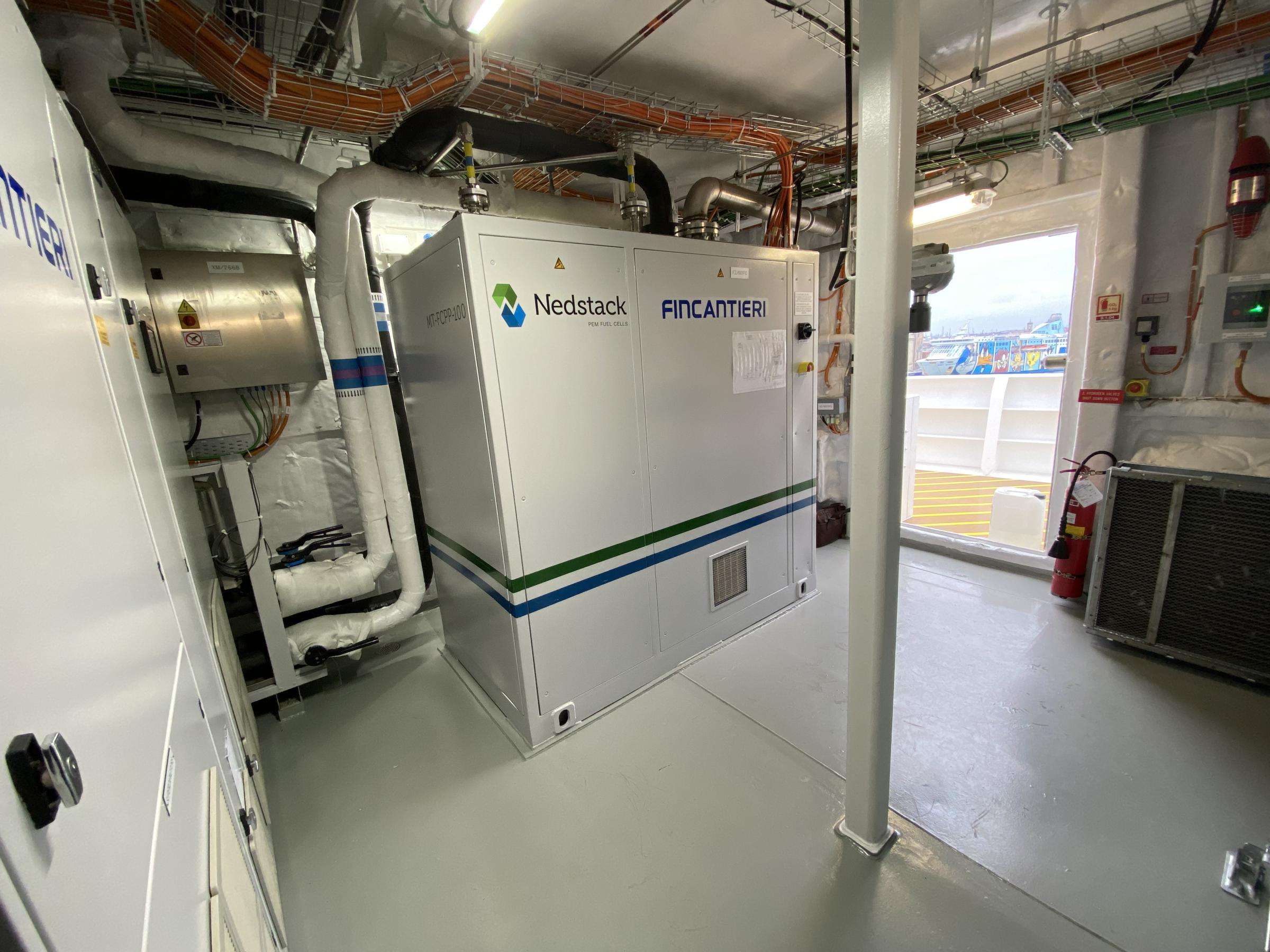
ZESTAs a crucial partner for the maritime industry
The Zero Emission Ship Technology Associations (ZESTAs) plays a crucial role as a partner for the maritime industry in promoting zero emission solutions. With strong commitment to sustainability, ZESTAs actively advocates for and drives the adoption of clean and green technologies in the shipping sector. Being active participant to the MEPC80, ZESTAs contributed to discussions and initiatives aimed at reducing greenhouse gas emissions and promoting sustainable practices in international shipping. Nedstack was one of the founding members and currently chairs the organization, acknowledging the need for cooperation between all stakeholders in shipping to realise the IMO ambition.
ShipZERO28: not just another conference
In a shared commitment to a sustainable future for shipping, Nedstack became a gold sponsor, supporting ZESTAs in organising the ShipZERO28 event at London International Shipping Week 2023.
This workshop, titled “When, Where, and How is Absolute Zero Shipping Possible Now?” allows networking, collaborating and meeting new players, reshaping the energy and shipping sectors, working together to make Absolute Zero Shipping Possible.
Join us at the International Maritime Organization Headquarters on September 11th and 12th to examine specific shipowner challenges, looking at how a combination of solutions can bring their fleets to absolute zero. Read more, register your interest in attending and explore sponsorship opportunities: https://zestas.org/shipzero28/
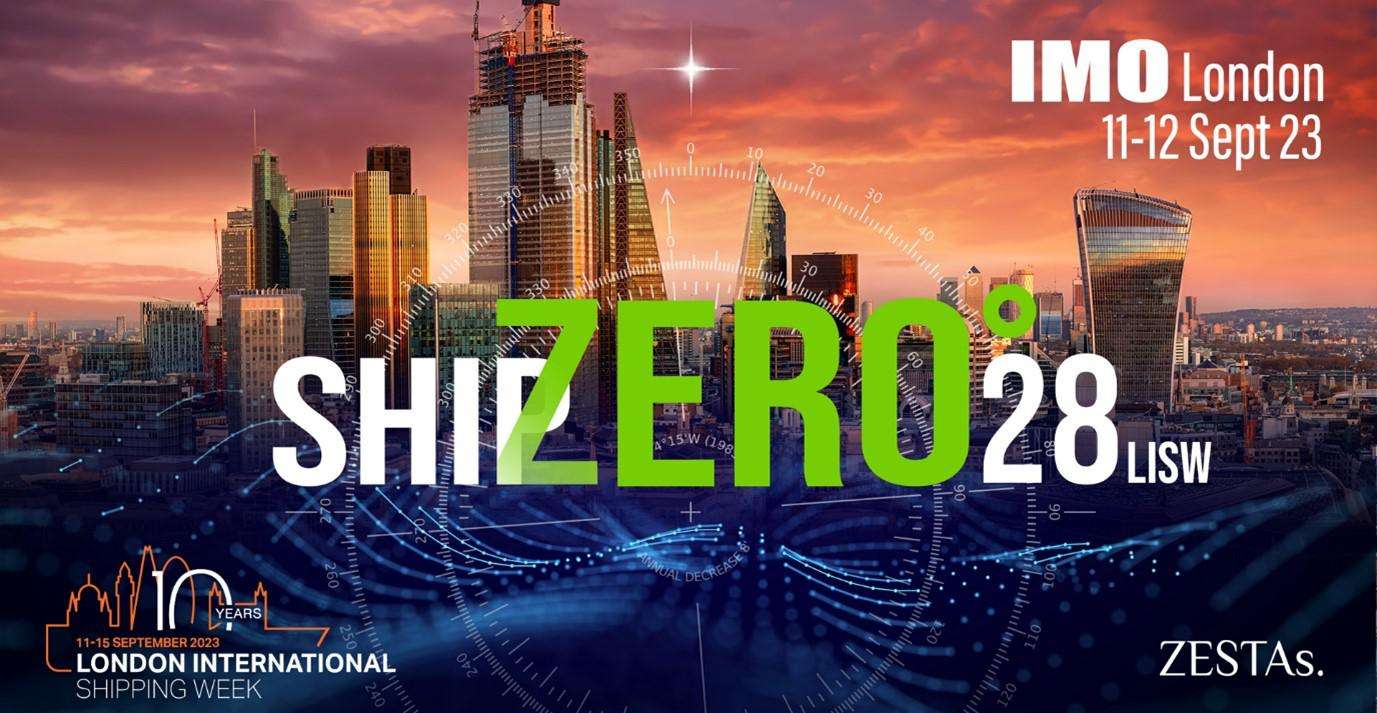
Conclusion
The IMO MEPC 80 strategy marks a significant turning point in the global shipping industry's commitment to combat climate change. As the maritime sector strives to achieve net-zero emissions by 2050, innovative technologies like Nedstack's fuel cell technology enable a direct path to achieving this goal. By providing zero-emission power solutions, PEM fuel cells play a vital role in helping the transition away from fossil fuels and contribute to a more sustainable future. Collaboration between Nedstack and industry stakeholders will be crucial in implementing these technologies and realizing the ambitious goals set by the IMO MEPC 80 strategy. We invite all, to join us in this quest.
